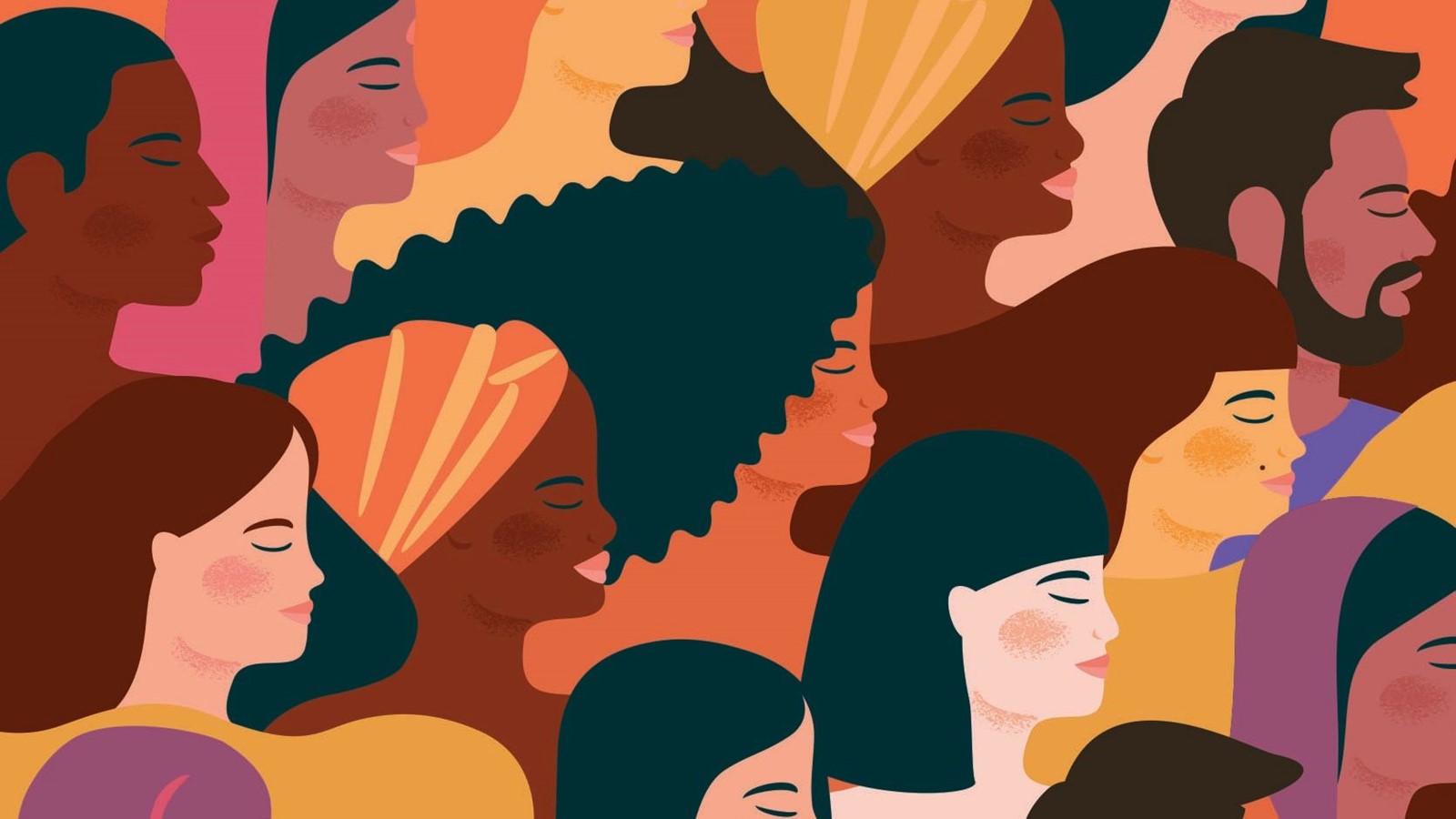The issue lies between Rogers and the client like a huge dead elephant. It is there but neither want to address the issue that there is a dead elephant in the room.’ So wrote Courtland C Lee, the first black president of the American Counseling Association, in his contribution to the 2004 book Carl Rogers Counsels a Black Client.1 The book is a detailed analysis and critique of two videos of therapy sessions recorded in the 1970s by Carl Rogers with a young black man (unnamed), who is in remission from leukaemia. The first is titled ‘The Right to be Desperate’, the second, ‘On Anger and Hurt’.
Yet, as Lee reports, while there is certainly a huge presence of despair, hurt and anger, neither Rogers nor the client makes any direct reference to the client’s feelings about his colour and race. There is, writes Lee, no space or invitation from Rogers for the client ‘to experience his blackness in any meaningful way’. Race remains a ‘dead elephant’ in the room.
Following George Floyd’s death in the US and the worldwide protests, including here in the UK, the counselling profession has not, of course, remained unaffected by the upsurge of hurt, anger and shame. Some 50,000 counsellors and psychotherapists will have received the heartfelt personal message from BACP Chair Natalie Bailey, in which she described her own experiences of racism as a black woman and a mother of sons, and her response as a counsellor and their professional leader. Promising to take action, she urged BACP members ‘to sit with the discomfort, shock, bewilderment, or shame’. ‘I envisage we will need to talk about how we support each other through this momentous period which affects our profession, whether it be us as practitioners or our clients... My promise to [George Floyd], and to all those who have walked before us, is that we will take it from here,’ she pledged.
In this article, several black and Asian counsellors and psychotherapists talk about their own experiences and feelings about racism within the counselling profession and how they believe the profession could ‘take it from here’.
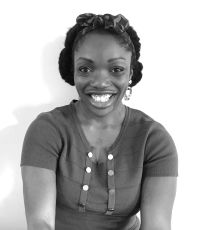
‘If I were to respond to every micro aggression, it would literally be a full-time job and would get in the way of my work’
Kemi Omijeh
Isolation
Counselling as a profession has not done the work it needs to do to address its own racism, at both individual and collective levels, says child and adolescent psychotherapist Kemi Omijeh. ‘Only last week another therapist said to me, “I don’t see you as black”. My answer to that is: “If you don’t see me as black, then I don’t exist for you”,’ she says.
She recalls how she spent most of her early career buttoning her lip, picking her battles and keeping her head down, because to do otherwise would have jeopardised her career in a profession she is deeply committed to. ‘It was about self-preservation. Now I address it, but five years ago, I had ambitions. I knew it would be a risk to my job and my career. I had a mental map in my head of where I wanted to go and if I encountered racism in my work, I would think, can I afford to challenge that person?’ she says.
The depth of her commitment is exemplified by her persistence; she came into the profession because she saw a desperate need for more young black counsellors. ‘Like a lot of counsellors, I felt I would have benefitted from talking to someone like me when I was a teenager. All through my interviews for counselling training, people kept telling me I was a bit young, come back in a few years. But I believed I could make a difference. During my training, there was just me and one other black woman on the course. Then she left, and my blackness became all the more apparent. It felt vulnerable and lonely. This probably influenced my active seeking out of colleagues that look like me and workspaces that offer more diversity. Throughout my training, I had no point of reference – my whole education was whited out and the onus was on me to fill in the blanks. It’s only in the last three years that it feels like therapy has become more diverse and I have made contact with other BAME colleagues through joining BAATN.2 Now that I am more confident in my career and know that my experience speaks for itself, I do speak up more, but even so, if I were to respond to every micro aggression, it would literally be a full-time job and would get in the way of my work.’
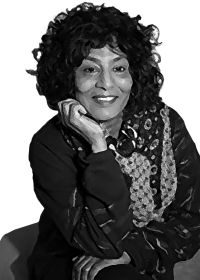
‘When I applied to train, I knew the course wasn’t going
to speak to me in any way. I just wanted to pass it’
Susan Cousins
Authenticity
But, she says, if she does speak out, she has to confront white fragility and she is still forced to self-censor: ‘It feels like my white colleagues are playing catch-up on racism and being anti-racist, something that was apparent to those of us in the BAME community long before it became a trending topic. White people retreat into silence if I speak too passionately about the issue and I don’t want that. I want to find another way of bringing about change without people feeling guilty and retreating into silence. But we can’t keep stroking egos when there is work to be done.’
This self-censorship and denial of authenticity is a common theme and a paradox within a profession for which congruence and authenticity are ‘necessary conditions’ for effective practice. Susan Cousins, a counsellor and author of Overcoming Everyday Racism,3 says: ‘When I applied to train, I knew the course wasn’t going to speak to me in any way. I just wanted to pass it. In the personal development groups, I filtered what I said and presented only what I felt the other students could deal with.’
Current training courses still by and large do not prepare counsellors to work with race and difference, she believes, meaning many white counsellors are unable to deal with the topic and the mêlée of powerful emotions it evokes. ‘They aren’t learning how to listen and hold their boundaries while staying curious. Their emotional responses are defensive guilt and fear.’ How then can what they offer be relevant to their black and Asian clients, she asks?
Keeley Taverner, psychotherapist, writer, life coach and supervisor in private practice, had her own painful encounter with white fragility on her first counselling skills training course. ‘We were asked to do an exercise about discrimination and my white colleagues spoke about being discriminated against because they loved dogs, or they were messy – at that level,’ she says. ‘I innocently spoke about my experience as a single-parent mother, having to deal with the racist assumptions of my health visitor. My fellow trainees were angry. I remember feeling really humiliated in the group process. So quite quickly in my career, I realised this was going to be a difficult topic to bring up.’
Child psychotherapist Deborah Clarke qualified in 2018 and recalls her strong sense of isolation during training: ‘I didn’t feel safe enough to describe some of my experiences of racism. I was the only black student in the group in my first year, although the tutor was black and another black student joined us in the second year. None of my fellow students were going to know what it feels like to be a teenager waiting to meet up with friends at the cinema and a group of white men chanting at you “There ain’t no black in the Union Jack”, or giving elderly ladies a wide berth so as not to scare them into thinking I’ll snatch their handbag.
‘I don’t want to have to sit with other people’s misconceptions and fears and embarrassment. In training, why aren’t there more recognised books from a black perspective? When videos are used, why aren’t we watching ones that relate to race and difference? Until they see it, people aren’t going to understand it. By not discussing it, it’s denying a part of my identity.’
Ruth Pimenta is a psychotherapist and trainer of Indian/English heritage. She worked for many years in child mental health and adoption, and now works in private practice. ‘I am light-skinned and I recognise my privilege in that, as I can pass for different ethnicities, yet my Indianness is an important part of my identity. When I was training, I had people say to me, “I don’t see you as Asian”, or “If you want to be seen as Asian, you should wear a bindi or sari”. I have also had people use the word “Paki” in conversation and then add, “I didn’t mean you, of course”. There’s the overt racism and then there are subtle things where you can’t always tell – where it’s made clear you are an outsider, where your authority is questioned. It’s about assumed superiority.’ Yet it can be so different, she says; when she worked in a local authority with a large BAME population, ‘I felt confident, valued and respected and there was real value put on different voices and different perspectives.’
That’s why Keeley Taverner now works in private practice: ‘I know all about the impenetrable glass ceiling,’ she says. ‘I experienced being held back in my previous public-sector role. Time after time, I have been more qualified than my white peers and not got promotion. So, it’s better for me to build my own business than to try to work my way up any organisation where white colleagues may not understand me or will feel uncomfortable with what I bring to the table.
‘I have created my own specialty so I don’t have to deal with being rejected, not getting jobs I am qualified for and not having my ideas brought to the table.’ In her previous career, she worked in the probation service, where most of the people doing the front-line work were black women. ‘We used to call the front-line work the cotton fields, or the plantation,’ she says. ‘In private practice, I don’t have to play the game, squash myself to make other people feel comfortable, deculture myself or go above and beyond to prove my worth.’
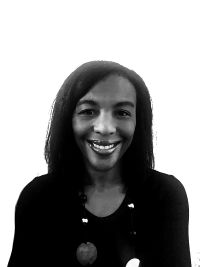
‘I don’t want to have to sit with other people’s misconceptions and fears and embarrassment’
Deborah Clarke
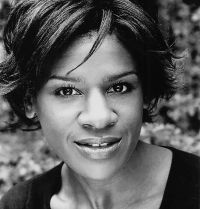
‘I realised I had been trying to fit into a white world and to do that I had had to lose my intrinsic self’
Billie-Claire Wright
Shame and respect
Billie-Claire Wright is a child psychotherapist who works for a large UK charity. For her master’s degree, she researched internalised racism. Her choice stemmed from having been gently confronted by her first therapist, a white man, who she saw when she was taking her diploma. ‘He asked why I had chosen him. I said I didn’t think a black therapist would be up to the job, and there was a palpable silence, and he said, “If that is how you feel, I wonder how you feel about yourself?” I felt a mix of shame, anger and confusion, and this stayed with me throughout my studies – “Is that how I really feel?”
‘I started looking at my whole journey – school, early years and how we were brought up. I realised I had been trying to fit into a white world and to do that I had had to lose my intrinsic self and put on a mask to make myself acceptable. This came from my parents,’ she says. ‘I am first-generation black British. I was born here, and my parents did everything they could to help us succeed in a white majority society. For them, that meant pulling us away from our black society, speaking a certain way and behaving a certain way. I went to a convent school and didn’t mix with black people; I was told, “They’ll bring you down.” These were the messages we were given growing up, and I internalised that.’
She recalls taking this story to an experiential group during her training: ‘There was me, one other black therapist and 18 white therapists and a white facilitator. I talked about that whole tendency to denigrate everything that was black about me, and there was silence, and I felt even more ashamed. The facilitator didn’t know how to handle it and just moved the conversation on. It took a very bad experience in a job after I qualified to make me realise I had to look at it and acknowledge it and understand it, which was why I chose it for my master’s research. But doing the research was challenging because I couldn’t find participants who wanted to talk about it. It brings up lots of painful feelings – the realisation that you have such negative feelings about your race. We aren’t used to talking about how we turn that racism against ourselves. But my participants found it very liberating, as well as hard.
‘I still have moments where I feel a sense of denial and I have to fight the tendency to want to hide, to blend, not to be noticed,’ she says. ‘It’s easier, and sometimes I feel I don’t have the energy to keep fighting. It’s a daily struggle – you don’t just realise you have internalised racism and then it disappears.’
Black Lives Matter and George Floyd’s death forced Pretish Raja-Helm to confront his own internalised racism – a painful and complex process for a self-defined ‘queer, brown person’, he says. Pretish is an integrative, relational psychotherapist and co-founder of Aashna, a therapeutic space dedicated to embracing differences, which has pioneered a series of encounters called ‘Let’s Get Uncomfortable’. ‘Black Lives Matter has really made me acknowledge my own brown fragility in how I have been indoctrinated and raised as part of a dominant white structure, with my own hidden and subtle racist attitudes and prejudices. None of us are free. Even within the queer community, there is significant racism. We are encountering such complexities of racism and how we act on each other.
‘I have had sleepless nights over it,’ he says. ‘How do I respect my experiences of prejudice and racial trauma yet acknowledge that I have privilege? It’s deeply complicated and uncomfortable.’ With the help of his community and allies, including his supervisor, an Israeli Jewish woman, he is ‘digesting that and becoming comfortable with that discomfort and working towards being a more authentic ally’. But, he says, ‘The work never stops.’
The road to change
Eugene Ellis is founder of BAATN – for so many black and Asian practitioners both a beacon and haven, offering professional identity and solidarity. Eugene sees the ability to initiate and sustain the ‘race conversation’ as fundamental to achieving a place where black, brown and white can be comfortable with the discomfort. But, while some individuals are doing the work, more needs to be happening at an organisational and institutional level if there is going to be meaningful change, he believes.
‘Discomfort levels are extremely high right now. I have been in spaces where people volunteer to be there for themselves and we have some really good race conversations that move people forward, but it’s not mirrored in the vast majority of the profession. Generally, the people who run the institutions tend to distance themselves from all of that. They don’t get involved, and if they don’t get involved, nothing really changes.
‘In the therapy profession, in my orbit, people are just fed up with training not moving on. The dialogue is exactly the same, the questions and answers are the same but nothing is actually changing, and if nothing continues to change, people are going to find other solutions.’ He predicts BAME practitioners may abandon the larger professional bodies and seek representation and collectivity in ‘smaller, more agile’ organisations.
Keeley Taverner chooses to focus her efforts on what she can change. ‘It’s a far better use of my energy than trying to fight a system that does not want to address the deeper issues of white awareness and white power,’ she says. She found her sanctum in BAATN while she was still training: ‘I realised I was naïve to hope that the counselling profession was race-aware. Once I realised that, I knew I had to strategise to best assist myself.’ Today, she supports other black people to navigate training and to function in the ‘system’. She’s a passionate advocate of self-empowerment and self-responsibility: ‘I believe in the importance of “building your own” so you can help all types of people in eclectic, culturally-sensitive, inclusive ways.’ She runs her own business, offering coaching, therapy, workshops and online programmes, and rents counselling rooms to support other practitioners in private practice. ‘I am using my energy in a productive way and creating content and programmes that speak directly to the people’s pain.
‘One of the problems with the Black Lives Matter movement is we’re going to the dominant power group and telling them that our lives need to matter to them. The sad reality is, time and time again, we find out how little we do matter. What matters is power, and if you don’t have power, you don’t get a seat at the table. We have to empower ourselves, individually and collectively.’
Deborah Clarke says that it is time white counsellors took responsibility for looking at their whiteness. ‘It’s a very difficult conversation for white people, to see themselves in terms of race, but it’s a very rich conversation and I think we need more of it and a more equal discussion. We need less emphasis on black people being oppressed and having all these difficulties and more focus on white people understanding their whiteness and their own identity and the history of that identity and its challenges. The point is to stop looking at us and asking us how you can understand our culture. You are responsible for your healing. Look at yourself and where you have come from and then we will talk.
‘We want our clients to be able to bring to counselling things that are raw and make them feel uncomfortable. If you, as a counsellor, can’t acknowledge what you find raw and uncomfortable in yourself and work on it, I ask if you have a place in the profession. You have to confront the parts of you that aren’t so nice.’ And it has to start in training, with more exposure and opportunity to discuss race and diversity, and more black tutors who are able to hold these discussions, she says.
Susan Cousins agrees: ‘I would argue for a change in the curriculum, change in the power base and change on the boards to tackle the power structure of institutional racism. Our big organisations need to change because if they don’t people will do their own thing.’ Just setting up another working group isn’t good enough, she says. ‘There needs to be more BAME people throughout all the structures of the organisation. Working groups can only make recommendations. The power is still held by people who deny racism and its impact on society. That denial is still there because many of the white people at the top still don’t talk to black people. They only want to minutely tweak around the edges and BAME people know that. There is a deep-seated racism around structural power and power sharing with black people. They are scared of what they will lose and of difference.’
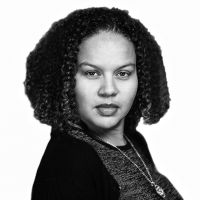
‘In private practice, I don’t have to play the game, deculture myself or go above and beyond to prove my worth’
Keeley Taverner

‘We have to put race on the agenda if we are to have any
relevance out there in the wider world’
David Weaver
Professional bodies
Eugene Ellis directly challenges the professional bodies to decide on and implement real change: ‘Unfortunately institutions tend to put the behaviour change first and hope the attitudes change afterwards, as happened with the Race Relations Act; people fall in with it because they have to. We therapists should be able to do it differently, and someone at the top has to take the first step. I would like the professional bodies’ mission statements to say why they want more BAME people in the profession – write down why it is needed and what they are going to do about it. And then do it.’
BACP President David Weaver says it’s time for BACP and other professional bodies to make good their claims for the relevance of counselling to the mental health of the nation and put race equality on their agendas for action. In this, his last term in office, Weaver says he is determined to spearhead a drive for real change. ‘We have to put race on the agenda if we are to have any relevance out there in the wider world when we claim that counselling changes lives. Looking at the disproportionate effect of COVID-19 on BAME communities, racial injustice is now a mainstream issue and we need to play our part in addressing that. We know the evidence around trauma and the links between stress, poverty and lifestyle issues and mental health. People need to talk, and they need therapeutic support to talk, and it is absolutely critical that we take action to address diversity in training, in the counselling workforce and within BACP.
‘This isn’t about setting up another committee,’ he says. ‘Policy frameworks are only as good as their practice. Having black people at the top of the organisation is important but it is only symbolic. Systemic change can only be brought about by having more BAME representation within and across the organisation and more black counsellors involved at decision-making, board and leadership level and in the education system. The biggest risk for us as a profession is that we don’t do it, and the biggest opportunity is that we do.’
Meantime two young women, one white and one black, have acted, tapping into the national outpouring of anger and shame to raise more than £500,000 through crowdsourcing to fund counselling for black people from black therapists. Says Annie Nash, co-founder with Agnes Mwakatuma of Black Minds Matter UK: ‘There has got to be some solutions here for black people to access therapy in terms of safe spaces where they can talk without having to worry about unconscious bias. We wanted to create that safe space.’ In the first four weeks of the campaign, in addition to raising the money, they had contact from more than 100 counsellors wanting to work with them and hundreds of people seeking therapy.
‘Therapy changed my life,’ Annie says, ‘I know there is some power that comes out of really looking after your mental health with someone who is qualified to help you find the tools and skills you need to cope with life and relationships that you may have grown up not having.’ The donations are still coming in, in amounts ranging from a few pounds to hundreds. It seems Black minds and lives do matter to a significant number of people.
To donate to Black Minds Matter UK, go to www.blackmindsmatteruk.com
Next in this issue
References
1. Lee CC. Twenty-first-century reflections on ‘The Right to be Desperate’ and ‘On Anger and Hurt’. In: Moodley R, Lago C, Talahite A. Carl Rogers counsels a black client. Ross-on-Wye: PCCS Books (pp228–230).
2. The Black African and Asian Therapy Network: www.baatn.org.uk
3. Cousins, S. Overcoming everyday racism. London: Jessica Kingsley; 2019.
